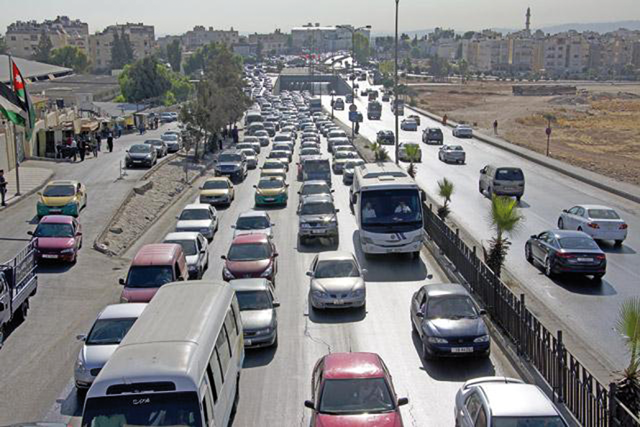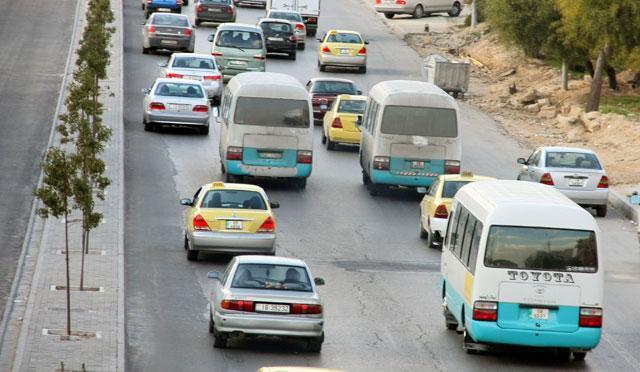You are here
Toll roads can lead to increased revenue, sustainable development, experts say
By Rayya Al Muheisen - Aug 27,2023 - Last updated at Aug 27,2023

According to a World Bank report issued in 2019, the government is working on developing 14 vital main roads, including 12 highways and two ring roads, with a total length of 1,379 kilometres (File photo)
AMMAN — While toll roads can provide an additional revenue stream for infrastructure development, careful consideration must be given to their implementation, say economists.
The government announced the completion of an economic feasibility study during the first half of this year. The study aims to assess the viability of implementing a toll road system on a select group of roads in the Kingdom, as reported by Al Mamlaka TV.
The move is part of the government’s broader effort to enhance the country’s road infrastructure and explore innovative methods of generating revenue.
Economists who talked to The Jordan Times expressed varying opinions on the potential impact of such a toll road system.
Economist Wajdi Makhamreh told The Jordan Times that toll roads can be an effective way to fund road projects and ensure their upkeep. However, it is crucial to strike a balance between generating revenue and avoiding burdening citizens, especially those with lower income.
Therefore, finding alternative roads is essential for users who cannot or even don’t want to pay for using a toll road, said Makhamreh.
He added that in light of the “devastating condition of streets in Jordan”, finding a revenue stream to enhance the condition of the streets is crucial.
“The project can also contribute to overcoming the traffic challenge the capital Amman has been suffering from for years,” Makhamreh added.
On the other hand, economist Hussam Ayesh views the introduction of toll roads as a positive step towards sustainable development.
Traffic congestion costs Jordan approximately JD1.5 billion, said Ayesh.
“Toll roads not only generate funds for road maintenance and expansion but also encourage more efficient use of the road network,” Ayesh added.
By placing a price on road usage, people might consider carpooling or using public transport, reducing congestion and environmental impact, said Ayesh.
The recent report on the progress of the Economic Reform Vision’s Executive Programme highlights the formation of steering and technical committees dedicated to the toll road system project, according to Al Mamlaka.
Al Mamlaka added that the financing of the project is also being examined by the World Bank, with discussions revolving around the potential value of $225 million.
This proposed initiative aims to boost the performance and financial sustainability of Jordan’s road network by attracting private sector investments.
According to a World Bank report issued in 2019, the government is working on developing 14 vital main roads, including 12 highways and two ring roads, with a total length of 1,379 kilometres, representing 18 per cent of Jordan’s total road network. The aim is to integrate them into the financial sustainability project by imposing fees on users.
Al Mamlaka added that a unified toll fee was proposed for the Jordanian highways, set at JD0.011 per kilometre ($0.015 per kilometre) for cars, and JD0.022 per kilometre ($0.030 per kilometre) for trucks.
The toll road proposal aligns with the broader goals outlined in the Long-Term National Transport Strategy, which was introduced in 2014. The government’s focus on sustainability is evident in its approach, as it contemplates the phased introduction of tolls, initially targeting freight transport and later expanding to include private vehicles, according to Al Mamlaka.
Related Articles
AMMAN — Beyond its environmental impact, renewable energy represents an effective way to achieve economic sustainability, economists suggest
AMMAN — The Economic Modernisation Vision has urged to reconsider a project that could help upgrade and ensure sustainable finance for the K
AMMAN — A total of 13,000 youth have completed the registration process for the National Unemployment Programme, according to Labour Ministe

















